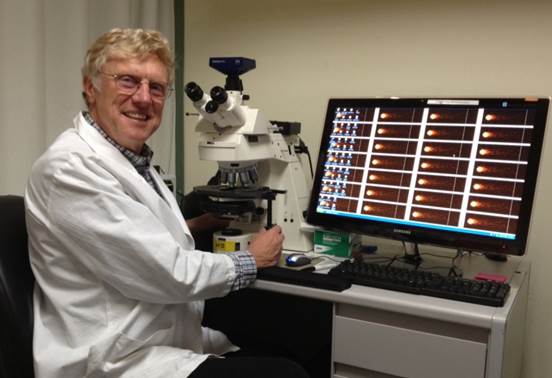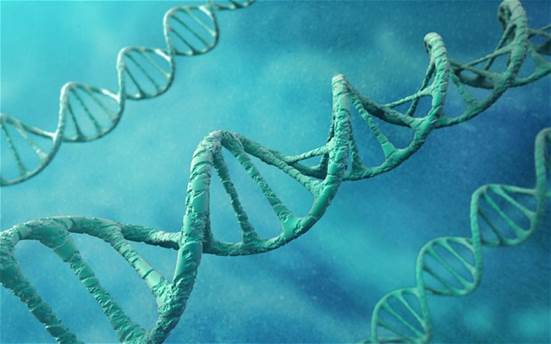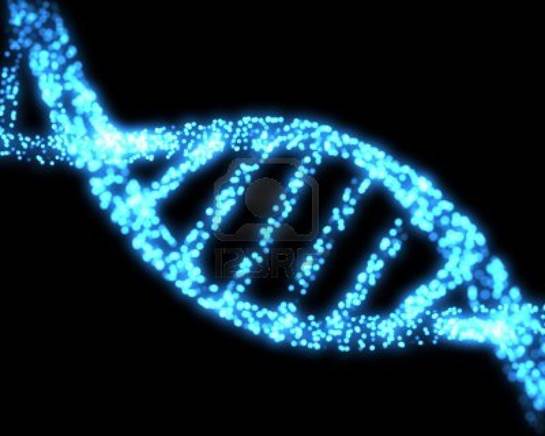Welcome to the world of
personalized diets, where a new DNA-based nutrition test can protect your
health and even help you slim down
Weight loss isn't easy, and keeping it off
once you've lost it can be even harder - particularly when what works for your
partner or a friend doesn't work for you. You all eat the same amount of carbs,
but while they keep dropping weight, yours doesn't budge.
Not fair? Doesn't make sense? Actually it
does, and a new type of genetic test promises to spell it out for you. Your
genetic make-up is unique, so the theory is that your diet should be just as
individual. Take the test and you might find out that based on your genes and
how your body works, you're eating too much of one thing, such as bread, and
not enough of another, such as lentils. Take the test and your diet efforts
could instantly become a whole lot easier.

A
new DNA-based nutrition test can protect your health and even help you
slim down
"The tests are extremely useful for
weight loss, "says naturopath Shannon Burford from Perth's Cura
Integrative Medicine, who uses tests offered by a company called Smart DNA and
prescribes individual diets for people based on the results. It all hinges on
the science of Nutrigenomics and Nutrigenetics. Both these branches explore how
our genes affect the way we respond to food.
"While a person’s genetic make-up
never changes, every gene has a protein sitting on top of it which acts like a
switch," says Burford. "It's my job to work out how to flick that
switch, if necessary, and depending on what the tests reveal, use diet and
nutrition."
How do the tests help with weight loss?
The Smart DNA tests examine a variety of
genes involved in body composition, including one that controls your body's
ability to mobilize fat. If you have a mutation, or alteration, in that gene,
it means your weight-loss efforts will be more affected by eating refined,
processed carbohydrates than someone without the mutation because, for you,
carbohydrates interfere with how your body processes fat.

The
Smart DNA tests examine a variety of genes involved in body composition,
including one that controls your body's ability to mobilize fat
A mutation in another gene that's included
in the test means you're likely to get better weight-loss results by eating
more fiber, which for certain people helps increase levels of a protein that
regulates glucose levels in the blood and boosts the breakdown of fatty acids.
"The tests can also assess how you
respond to stress, which is important because when the body goes into a state
of excess stress, it starts to store fat,” says Burford. "And we can work
out which of your body's detoxification pathways need to be supported in order
to help make weight loss as successful as possible."
What about protecting against disease?
Tests can also show whether what you're
eating increases your risk of heart disease, diabetes and even cancer, because
of how certain nutrients interact with your body. As well as weight gain and
loss, the Smart DNA tests evaluate genes associated with ageing and
cholesterol, among others.
Nutrigenomix is another test available in
Australia and while it doesn't help with weight loss, it puts seven
nutrition-related genes to the test - including sodium, folate, caffeine, whole
grains, omega-3s, vitamin C and saturated fat to reveal how your body
metabolizes nutrients.
Julie Dundon, a dietitian and director of Nutrition
Professionals Australia, says the Nutrigenomix tests can provide valuable
information. "We're testing to see what your genes reveal about how you
metabolize certain nutrients," says Dundon. "So if you have a
particular variant of a gene that means your body is slow to break down
caffeine, you'll be more affected by the stimulant than other people, which
might increase your risk of heart disease. In people with that gene variant,
we'd look at ways of changing the diet to limit caffeine."

Some
people have a variant of a gene that affects how their bodies process whole grains
Other genes tested for include one related
to sodium, or salt. Depending on your variant of the relevant gene, you might
be more affected by a sodium-rich diet than the next person, which increases your
chances of high blood pressure and makes sticking to a low-sodium diet more
important for you.
Some people have a variant of a gene that
affects how their bodies process wholegrains. They need to replace
significantly more refined carbohydrates in their diet with healthier ones, to
benefit from the risk reduction whole grains can have on developing type 2
diabetes.
Can they diagnose or predict disease?
No, the tests don't diagnose disease or
disease risk, partly because many factors other than genes contribute to your
risk of health problems such as diabetes and high blood pressure.
But Burford says test results provide an
invaluable insight. One of the Smart DNA tests offered at his practice tests
for mutations in the MTHFR gene. "It's an enzyme that's involved in folate
metabolism, and it's been linked to a variety of health problems including
depression, infertility and autism," says Burford."It's predicted
that 30 per cent of people have an alteration in that gene which means they
don't metabolize folate effectively and instead need the active form of folate,
called Folinic acid.
"If the test reveals that you have a
mutation in that gene, it doesn't mean you're definitely going to get one of
the associated diseases," says Burford. "But it does provide the
chance to support your body with some targeted dietary changes, to make sure
you're getting enough folate."
Dundon agrees. "These tests provide
much more detailed, specific information based on a person's genetic make-up,
which is something we're born with and which doesn't change over the years.
"Research shows that when people are
given customized dietary advice, they're much more motivated to make the
changes being suggested, compared to when it's just blanket, one-size-fits all
advice. These tests identify the key things that are relevant to an individual,
which gives them some focus."
According to Burford, the tests are really
powerful. "It's an area of research that's exploding, with new gene
mutations being discovered all the time," he says. "We're already
seeing the positive effects of this technology, and it'll help more and more
people minimize their risk of disease using customized diets in the future.
That's exciting."
Need to know
The procedure: The DNA-based nutrition
tests offered in Australia are done using your saliva, a sample of which is
sent to a lab for analysis and results are ready a couple of weeks later.
The results: Are always delivered by a
dietitian. "That's an incredibly important part of the process, and is
something that separates these tests from some of the other DNA-based health
tests available online, "says Dundon. "It means people don't risk
being given their results and not being able to understand the implications of
them."

One
category can cost $60
The cost: The Nutrigenomix test, which
assesses seven dietary aspects, costs $285, plus the dietitian's consultation
fee. Tests offered by Smart DNA vary depending on the number of categories
covered - one category can cost $60, but a more comprehensive test covering
between eight to 15 categories costs $500 to $850.
To find out more: Visit nutrigenomix.com to
read more about the science and locate a dietitian in Australia who offers
testing, including Nutrition Professionals Australia (npaadelaide.com.au).The
tests available at Cura Integrative Medicine (curamedicine.com.au) are provided
by Smart DNA (smartdna.net.au).